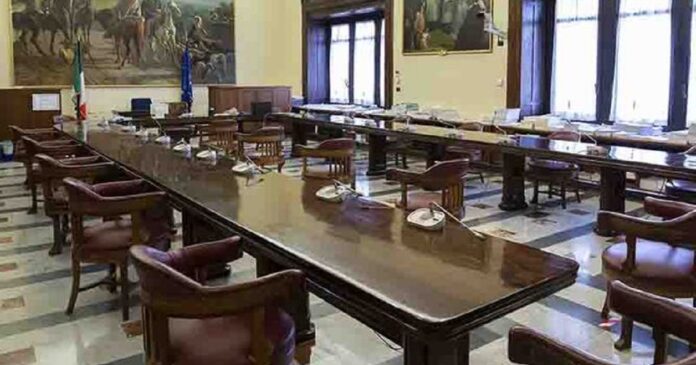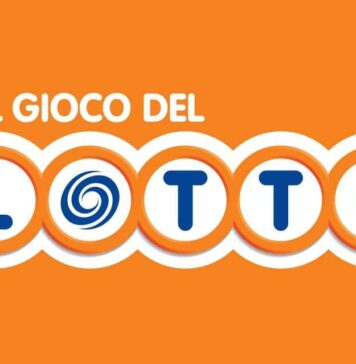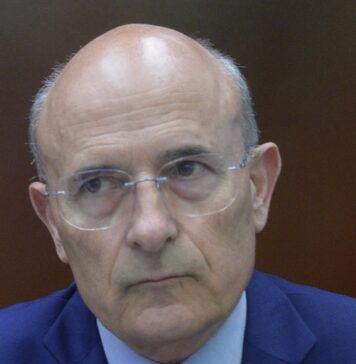
In the session of Tuesday 6 February, the Senate Finance Commission began examining the "Schematic legislative decree containing provisions regarding the reorganization of the gaming sector, starting from remote gaming (n. 116)".
The rapporteur Fausto Orsomarso (FdI) introduced the provision, which "implements some of the principles referred to in article 15 of enabling law no. 111 of 2023, containing the principles and directive criteria for the reorganization of the provisions relating to gaming. In particular, paragraph 1 of the aforementioned article 15, in delegating the Government to implement, with the legislative decrees referred to in article 1, the reorganization of the provisions in force regarding public games, confirms the organizational model of public games based on the regime concession and authorization, as a guarantee regarding the protection of public order and safety, the reconciliation of general public interests in terms of health with those of the treasury on the regular inflow of the tax levy on gaming, as well as the prevention of the laundering of activity proceeds criminal. Paragraph 2 specifies the specific guiding principles and criteria for the exercise of the delegation regarding gaming which it analytically takes into account.
Regarding the content, the scheme is made up of 26 articles. In a nutshell, Article 1 specifies the purpose underlying the rules of the decree in question or that of introducing a systematic regulatory framework of gaming regulation. The law also provides that the provisions for the regulation of games played via physical network will be contained in a subsequent legislative decree and that the regulation of gaming houses remains excluded from the scope of application of the decree in question. The article 2 contains the definitions of some terms used in the decree. The article 3 indicates legal principles of gaming in Italy which must also be considered as interpretative criteria of the rules regarding public gaming. Article 4 indicates the European principles regarding gaming to be applied in the exercise of public gaming in Italy. The rule also establishes that the European principles are valid as a preferential interpretative criterion of the rules placed on the regulation of gaming in our legal system. Article 5 indicates the sources that regulate gaming regulation in Italy, also establishing that any changes to the current regulations can only be introduced if explicitly reported. Furthermore, the article introduces rules aimed at guaranteeing the principle of stability of the concession rules. Article 6 regulates the operation and collection of remote public games with cash prizes, and the related concession system. With reference to this article, it deems it appropriate to carry out further investigation to clarify whether the limit of five concessions per corporate group applies to the games referred to in the letters to be a) to g) of paragraph 1 taken individually or together and whether the calculation of the five concessions also includes the games referred to in the letters to be h) to l). The article 7 requires concessionaires authorized to remotely collect public games to track the payments and winnings resulting from the collection of bets as well as the compensation due to the subjects operating in its network. In this regard, it points out that the provisions in question do not specify which tracking methods must be used in order to guarantee the purposes indicated by the law. The article 8 identifies the minimum conditions to be introduced in the clauses relating to contractual penalties included in the agreement schemes relating to concessions for the remote collection of public games. The article 9 provides for the transfer of a concession for the collection of remote public games must be authorized in advance and expressly by the Agency under penalty of nullity. The article 10 regulates the cases of renegotiation in good faith of the contractual conditions. In his opinion, it might be appropriate to explain, as in the cases referred to in Article 9, the type of regulatory act by virtue of which compensation may be recognized in the event of excessive onerousness occurring. Article 11 provides that the awarding of the concession involves the transfer of the risk to the concessionaire operational linked to its management according to the regulations of the Public Contracts Code. Article 12 entrusts the Customs and Monopolies Agency with the task of adopting the minimum technical rules based on and implementing which each of the concessionaires prepares and puts into operation its own network telematics or infrastructure hardware e of data transmission necessary for the operational management of the concession, for the purpose of pursuing the safeguarding and protection of certain general interests. Article 13 entrusts the Customs and Monopolies Agency with the task of establishing and maintaining the register for the registration of resale owners, ordinary or special, of monopoly types authorized for the collection of public games, as well as of subjects who carry out the activities of top-up sales points. Article 14 clarifies the primary objectives of gaming regulation, which consist in pursuing full and reliable protection of the player's health through suitable measures to prevent any gaming modality that could generate pathological behavioral disorders or forms of gambling addiction, also through the use of artificial intelligence. It then establishes a permanent council for public games admitted in Italy, with the aim of monitoring the progress of gaming activities and their effects on the health of players, as well as proposing suitable measures and interventions to the Government with the aim of combating the development of gambling addiction. Article 15 identifies the criteria which must inform the organizational forms of the concessionaire and its technical tools, technological and IT with the aim of protecting and protecting the player, preventing and combating pathological gambling. It also requires dealers to annually invest a sum equal to 0,2 percent of their net revenues, in any case not exceeding 1.000.000,00 euros per year, in information campaigns or responsible communication initiatives. Finally, it establishes a government commission operating at the Department for Information and Publishing of the Presidency of the Council of Ministers with the aim of identifying the issues on which the aforementioned information campaigns and communication initiatives must focus, without new or greater burdens of public finance. Article 16 dictates provisions regarding liability for the offer and collection of remote gaming carried out by the concessionaire. Article 17 leaves the definition of the detailed aspects regarding winnings to the regulation of each game, any refunds, as well as the retention by the concessionaire of the data and information regarding the winnings. Article 18 places the obligation on the licensee to provide for the payment of cash winnings from the games he manages. Article 19 delegates the definition of communications of game outcomes on the concessionaire's IT website to the gaming regulations. Points out, with reference to this article, that the term "odds-based games" is not found among the definitions referred to in article 2. Article 20 regulates the maintenance of gaming products. Article 21 dictates provisions aimed at concessionaires of numerical games and instant draw lotteries, for the purposes of remote collection of the aforementioned games. Article 22 contains provisions aimed at combating the offer of remote gaming in the absence of a concession, postponing the definition of the same to a specific regulation. Article 23 contains the transitional and final provisions, while Article 24 contains coordination provisions. Article 25 establishes that the increased revenue deriving from the application of some rules of the measure in question are intended to increase the specific fund established by the tax delegation law. Article 26 regulates the entry into force".
Finally, the rapporteur recalled that the deadline for expressing the opinion is set for 22 February 2024.
The President of the Finance Commission, Massimo Garavaglia (Lega), underlined that "the Commission will need time to delve into the innumerable and delicate issues connected to the provision, also for the profiles linked to the market and competition".
The undersecretary Sandra Savino he took note of it.
The senator orsomarso (FdI) then informed about the arrival of further hearing requests, which it deemed appropriate to follow up.
President Garavaglia (Lega) shared the proposal and has assured that further informal hearings could take place next week, on a date to be established.
The follow-up exam has been postponed.











